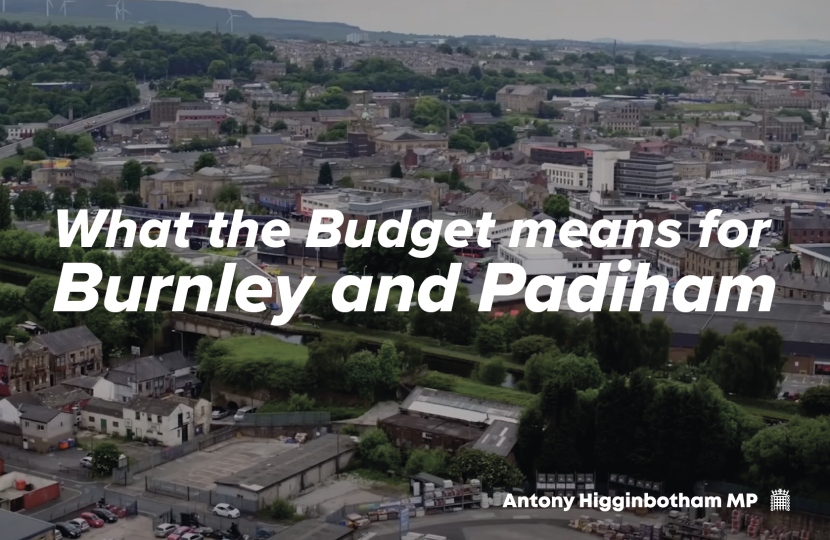
There have been few Budget’s from Government as transformational for our borough as the one delivered by the Chancellor of the Exchequer, Rishi Sunak, on Wednesday. Not only did it mark our national economic revival post-Covid, with the measures announced being about how our economy will be shaped long term rather than dealing with the pandemic, but it also brought news about our local economic revival too.
Central to this was the success of our Levelling-Up Fund bid. Submitted in the early summer, this bid demonstrated our ambition for what Burnley could be – not just as a town but as a borough. A borough that combines two leading educational providers in Burnley College and UCLan, ensuring that at every stage of life local residents have access to the skills and knowledge needed for the 21st century. A borough the capitalises on the economic benefits that can come from a globally recognised football club, by expanding our town centre zone and drawing fans into our businesses. And a borough that has accessible public transport connections so we offer visitors the right welcome when they arrive.
This won’t be another project that gets talked about but fails to get delivered. The timetable for this scheme is ambitious, but achievable, with construction due to start next year and finished by 2024. And it comes on top of the funding Government and Lancashire County Council put in to Pioneer Place to ensure that gets delivered too – totalling more than £6.6 million. Unlike past investments in the borough these schemes aren’t funded by unaffordable PFI contracts, but instead represent the biggest direct Government investment in Burnley for decades. It will transform the town centre and when our town thrives, our whole borough thrives too.
But the Budget did much more than this too. Millions of people across the country, including thousands in Burnley, will be better off as a result of the increase in the National Minimum Wage to £9.50 an hour, the freeze in fuel duty for the 12th year in a row, and reducing the taper rate for Universal Credit from 63 per cent, down to 55 per cent. Such a high taper rate has always meant that earning more, whilst being on UC, has been a double edged sword. It has acted as a tax on getting a job, taking on more hours, and striving to better yourself. By reducing it down to 55 per cent, as called for by organisations from the Trades Union Congress through to the Resolution Foundation, that has ended – and people will be keeping more of the money they earn.
Public sector workers, like our Police officers, teachers and firefighters, will see their pay return to a normal position too. Freezing pay this year, reflecting the tough economic conditions we were in, was a difficult but necessary decision. But it’s right that as the conditions improve, so will pay.
For our hospitality businesses the picture is now brighter. We have more than 70 pubs across Burnley and Padiham and through the Draught Duty Relief the cost of a pint will go down, allowing them to better compete with off-licences, and protecting their position as essential parts of our community. Rates relief of up to 50 per cent will also be offered next year, giving not just pubs, but restaurants, bars and hotels – which collectively employ thousands of local people – the opportunity to get back on their feet after the pandemic.
Finally, there was big news for our public services, with more than £150 billion to be invested in them over the coming years. This will fund the extra Police officers which are already being recruited, a new network of diagnostic centres for the NHS, Family Hubs to support
those first few years of a child’s life, and guaranteed funding for our farmers as we leave the Common Agricultural Policy.
This was a Budget that delivered for public services and delivered for Burnley. The opportunity is now ours to grasp.

